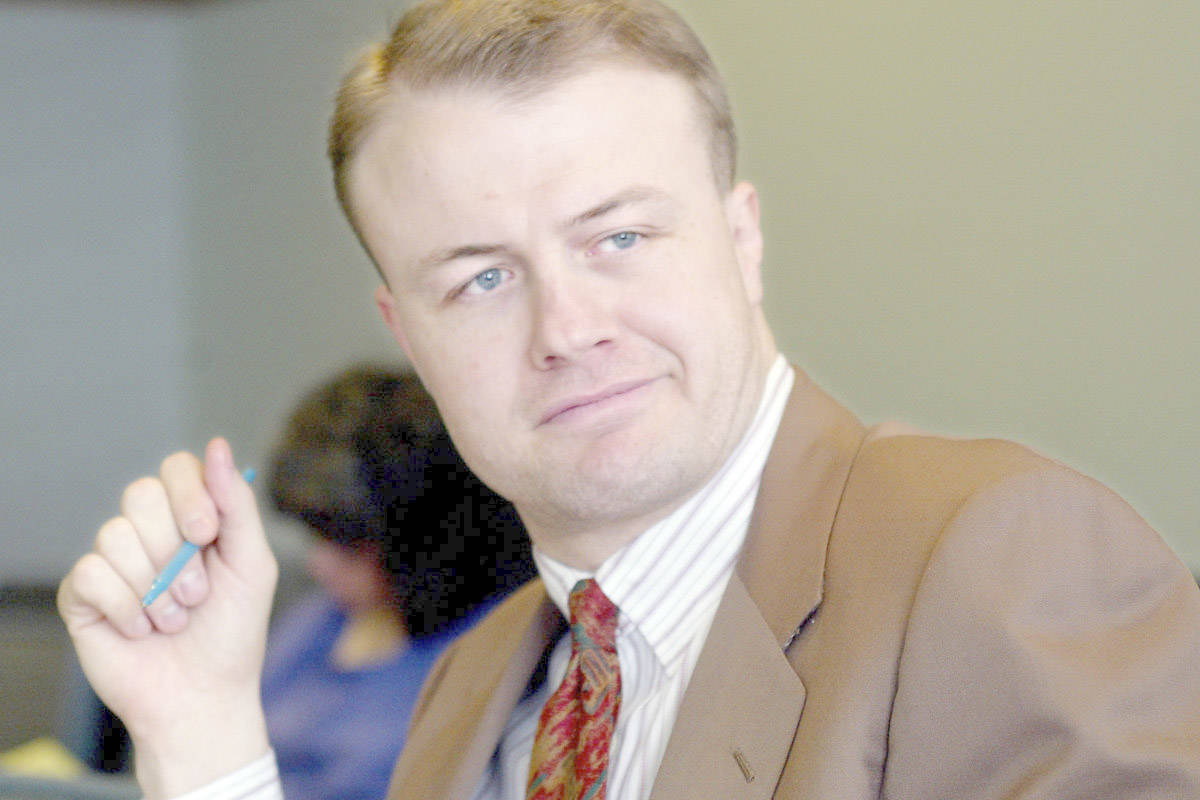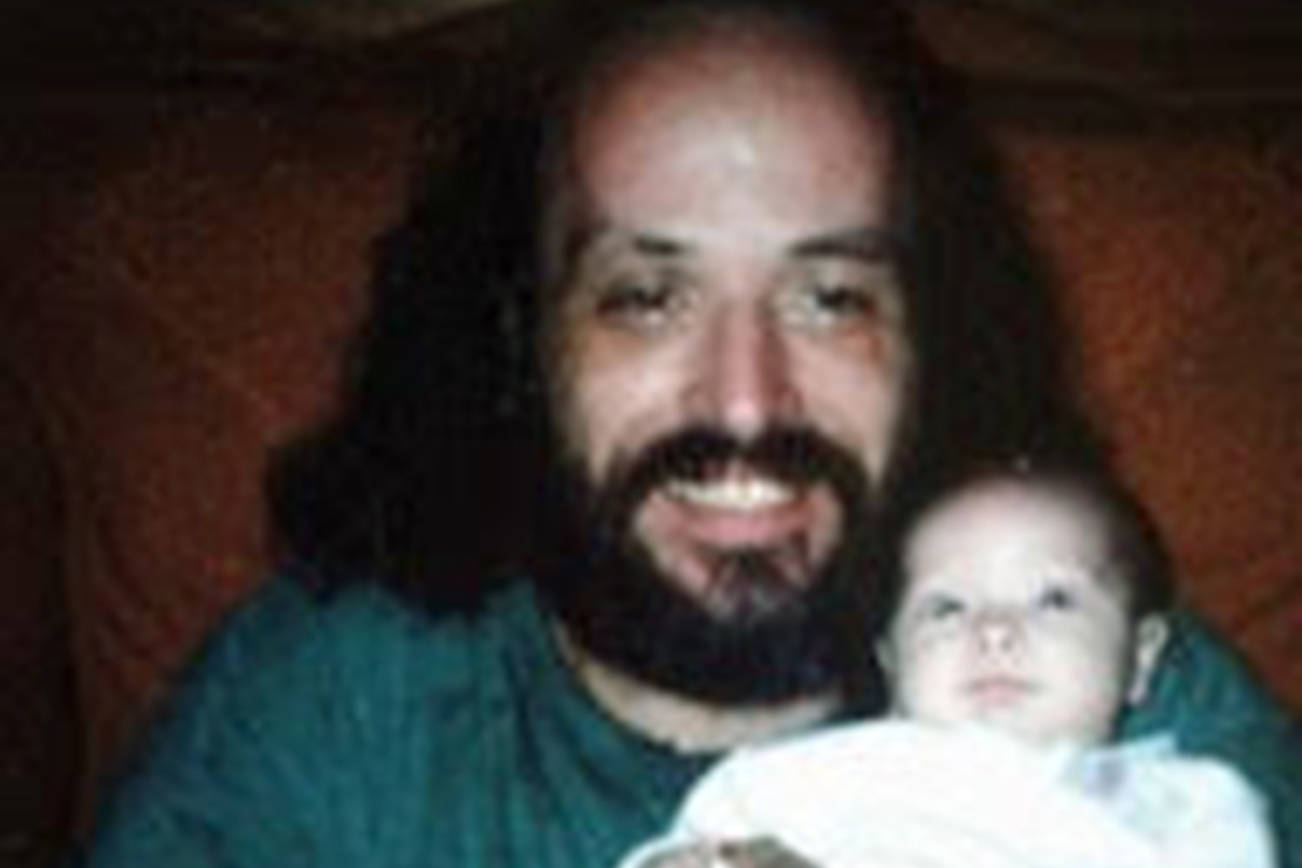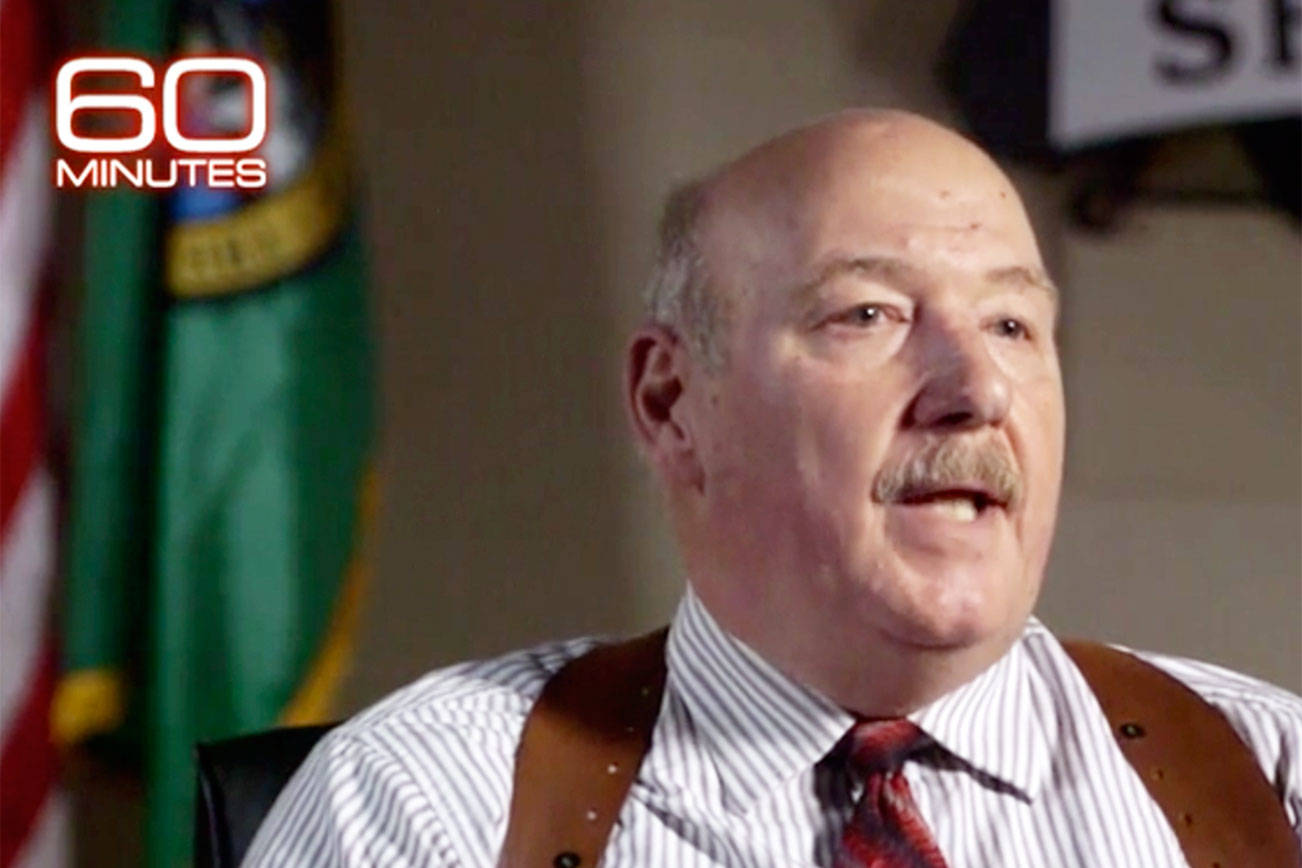Over the years, professional initiative promoter Tim Eyman has had a knack for finding hot-button issues that get people riled up enough to sign a petition.
Most of his campaigns have reached the ballot.
He speaks with confidence about the odds of his latest measure—Initiative 947, which once again would reduce car tabs to $30. If it gets enough valid signatures, it could appear on the November 2018 ballot.
He’s banking on the sticker shock car owners in Snohomish, King, and Pierce counties have reported feeling in recent months when they get their vehicle tab renewal bills.
“My gut tells me this is really hitting at the right time,” Eyman said Tuesday after a press conference at the King Street Station in Seattle.
Eyman, of Mukilteo, figures car owners in the Puget Sound region are smarting after voters agreed to pay a series of tax increases to pass Sound Transit 3 in 2016. The $54 billion project calls for adding 62 miles of new Link light-rail line.
Under the ballot measure, the motor vehicle excise tax rate rose from 0.3 percent to 1.1 percent, the sales tax went up a half-percent in the taxing district and there’s a first-ever property tax assessment collected by Sound Transit.
The near quadrupling of the excise tax rate resulted in some vehicle owners paying hundreds of dollars more for their tabs. Part of the reason is Sound Transit uses a 1990s depreciation schedule that overvalues vehicles. The Legislature updated it in 2006 to better reflect the actual values of vehicles as they age. But a 2015 law enables Sound Transit to keep using the older method until 2028, when bonds sold in the earlier phases of expansion are retired. That’s also when the previously existing 0.3 percent rate expires.
Eyman said Initiative 947 would get rid of all car tab fees imposed by Sound Transit. It also would drop weight fees imposed by the state and vehicle fees charged by cities for what are known as Transportation Benefit Districts to pay for extra road work.
The initiative to the Legislature would allow state lawmakers to approve the measure or leave it up to voters. Efforts by the Legislature to come up with a compromise bill on the car tab fees failed earlier this year.
The initiative would require that vehicle taxes be based on Kelley Blue Book value.
Twice before, through Initiatives 695 and 776, Washington’s voters have approved the $30 car tab fees. Those costs have risen over time through increased fees tacked on at the state and local level. The ST3 vote affected car owners within the Sound Transit taxing district, which includes much of Snohomish County.
Initiative 947 would be decided by voters statewide, not just in the Puget Sound area where the ST3 car tab fees are imposed. Eyman argues that there are statewide implications to the tax increase in the Sound Transit district. He said voters in the region also feel duped by what they thought they would be paying in higher car tabs and what they actually are billed.
“Our initiative comes along and says let’s give voters a redo,” Eyman said.
Paul Roberts, an Everett City Council member who serves on the Sound Transit Board, said Tuesday afternoon he had not seen the initiative and couldn’t comment on its specifics.
ST3 is critical to the economy and in dealing with growth and traffic congestion, he said.
“We spent 40 years not building this infrastructure and we are here today,” he said.
Eyman said everyone in the state should get a flat $30 annual fee to license their vehicle because they already pay a lot in sales tax when they buy a car and in gas taxes when they use their car. High car tab fees are a third bite at the apple, he said.
Eyman is pursuing the newest initiative at the same time he is facing a $2.1 million lawsuit by the state attorney general, who is alleging that he misused campaign funds for personal expenses.
Attorney General Bob Ferguson has accused Eyman of secretly moving campaign funds between two initiatives in 2012 and receiving hundreds of thousands of dollars in kickbacks from the firm that collected signatures for the measures.
Eyman’s attorney has denied Eyman did anything wrong.
To get the measure on the ballot, initiative backers will need to gather 259,622 valid signatures between now and the end of the year. The state Secretary of State’s Office is recommending they turn in 325,000 signatures to weed out any that are invalid, said Brian Zylstra, a spokesman for the agency.
Scott North contributed to this story.
stevick@heraldnet.com
A version of this story originally appeared in the Everett Herald.







